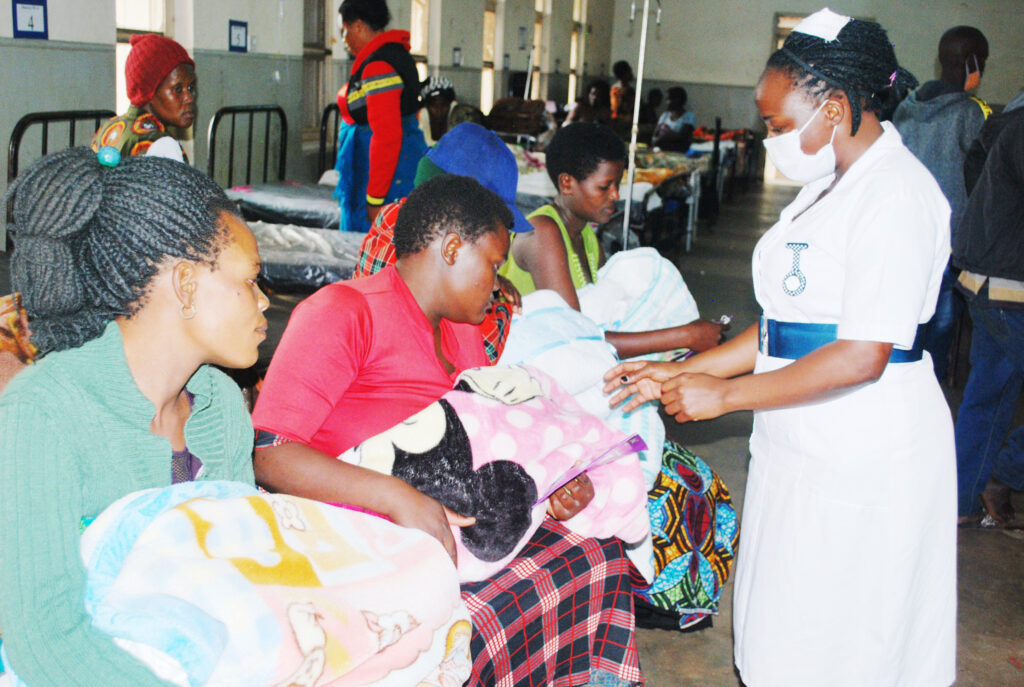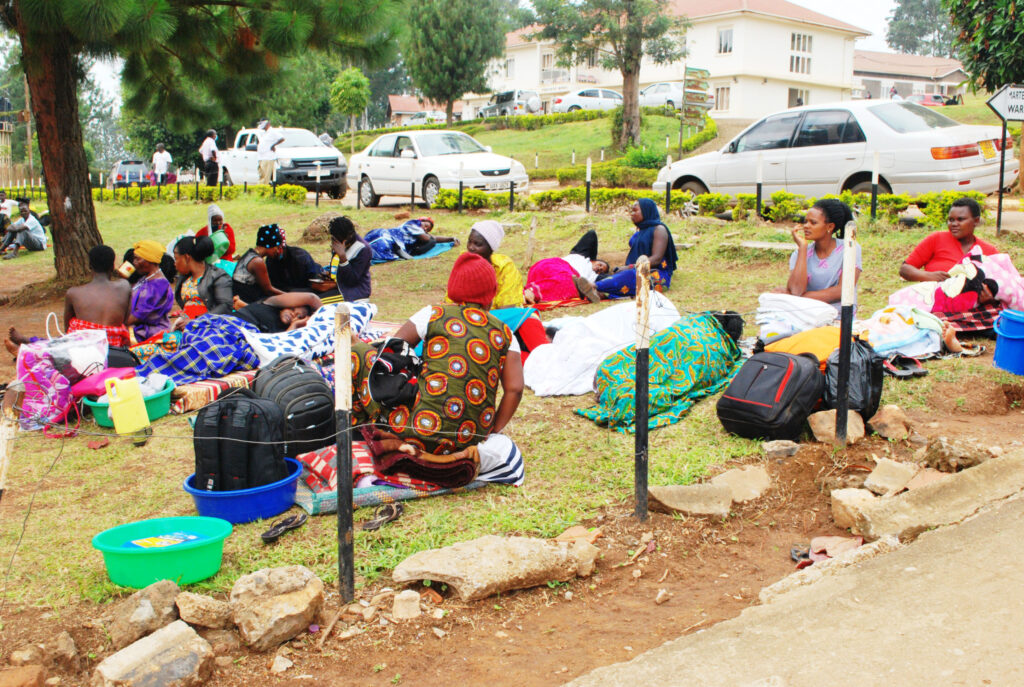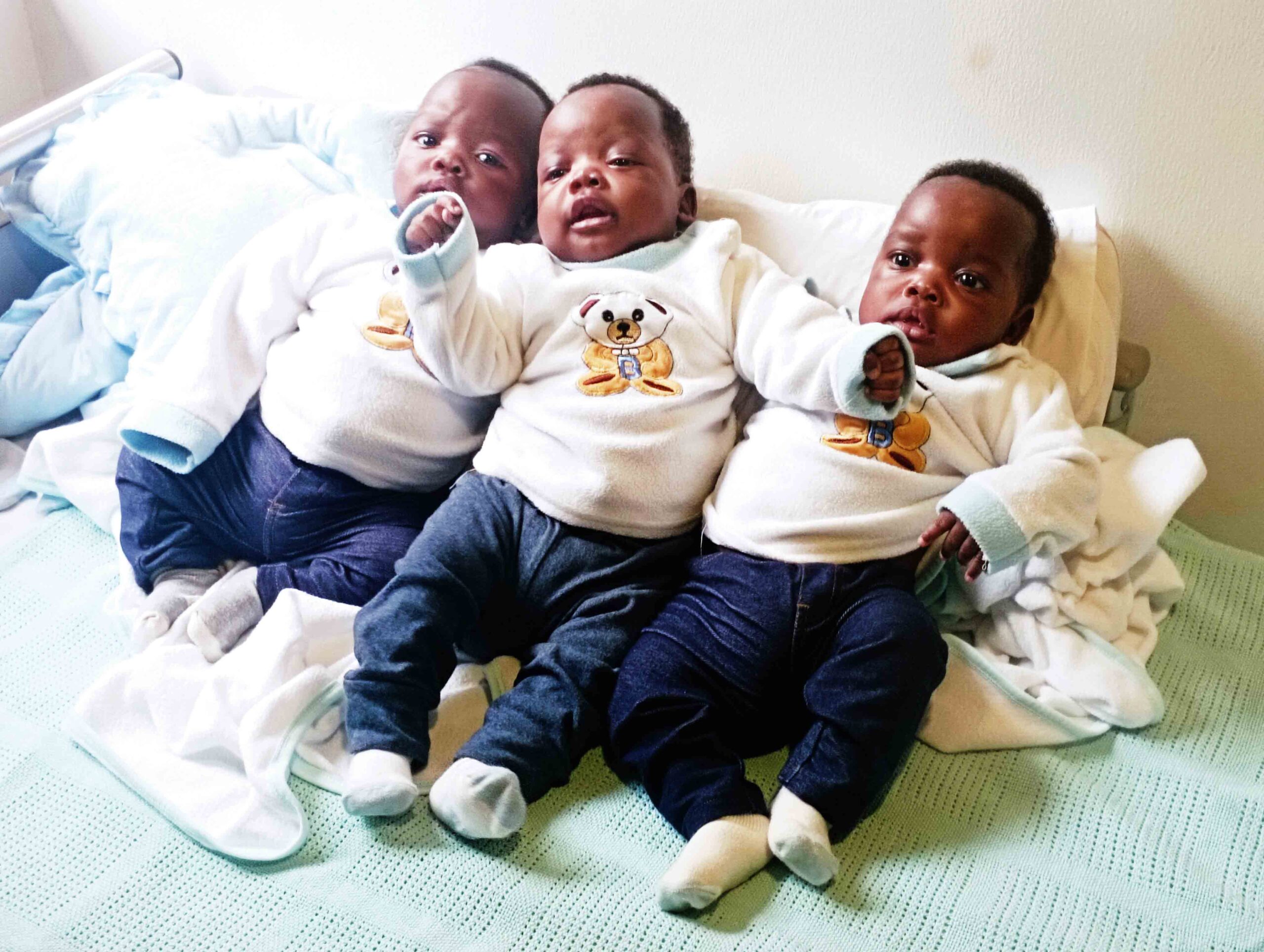In March, government institutionalised a national lockdown to slow down the spread of Covid-19. This affected, among other things, transport. Imposing a ban on transport made it complex for pregnant women to access health facilities. Consequently, some of the pregnant women resorted to giving birth from home without appropriate support. Others have embraced services of traditional birth attendants. Whereas public transport has been, opened in most districts, with caution to follow Covid-19 standard operating procedures, women still struggle to access timely maternal health services with some trekking long distances which result into poor outcomes including pregnancy and childbirth complications, not to mention death, AGNES KASEMIIRE writes.
Maria Nakate, 38, a resident of Bakijulula parish in Mityana district recently delivered her 10th baby at home with the help of her mother-in-law. “It was night time and I was afraid to travel to a health centre because of the curfew. But I was lucky that my mother-in-law helped to deliver the baby,” Nakate says.
Unfortunately, Nakate’s baby developed difficulty in breathing and the following day, she had to trek five kilometres, accompanied by her oldest daughter, to seek treatment at the nearest health facility.

Delayed referral causing complications and death
The two months of total lockdown greatly affected people’s income. As such, some women cannot afford the high transport costs, consequently delaying to reach health facilities. This has resulted into complications such as severe bleeding, raptured uterus, fresh stillbirths and maternal deaths. Rashid Simuya, a medical officer at Kibuuku Health Centre IV in Kibuuku District, confirms the development.
Simuya says transporting mothers from lower health facilities remains a struggle because mothers cannot afford to move on their own. A distance that was charged Shs 4,000 before the lockdown, now goes for Shs 10,000.
This amount an average rural woman cannot afford, Simuya says. Dr Irene Chebet, a consultant obstetrician and gynecologist at Soroti Regional Referral Hospital, says they keep registering cases of before arrival deliveries on the way due to delay.
Explaining the reason for delay, Dr Chebet blames it on poverty. “Women cannot raise money for transport, consequently reaching health facilities late,” she says, citing a recent case of a mother who suffered a raptured uterus. According to Dr Chebet, the mother delayed at home because she could not afford to hire transport means to the nearest health facility.
Upon arrival at the lower facility, she was referred to Soroti hospital. It took so many hours to get to the hospital and when she finally did, her uterus had raptured. Unfortunately, the baby died but the health workers managed to save the mother.
In June, Kabale Regional Referral Hospital recorded seven fresh stillbirths, nine newborn deaths, seven macerated stillbirths, and two maternal deaths due to mothers delaying to reach the facility, says Annet Naiga, a senior nursing officer at the hospital. The figures did not change much in July as the facility registered seven fresh stillbirths, five macerated stillbirths and seven newborn deaths, plus two maternal deaths.
Naiga says newborn babies die due to prolonged labour which may lead to obstruction. Consequently, babies are born tired which narrows their chances for survival.
Other mothers reach the health facility with severe bleeding before the baby is born, she says.
Dr John Wanyama who heads the gynecology department at Naguru hospital says late referrals from especially private facilities has remained a big problem.
Some women first try delivering from home, and come to hospital after failing. He says from April, May and June, the facility registered many cases of delayed referrals which resulted into severe complications and some maternal deaths.
Stock out of emergency drugs
Mary Lugolole, a midwife at Iganga Regional Hospital, says with the easing of the lockdown, mothers are able to reach the facility.
However, the biggest challenge is stock out of emergency drugs such as Magnesium Sulphate used to treat mothers with pre-eclampsia, yet mothers do not have money to buy the medicines.
She estimates that an amp of Magnesium Sulphate costs about Shs 40,000. “To start treatment a mother would need about three amps, yet majority can only afford one. As a result, mothers keep on convulsing,” she says, adding that during the total lockdown, a mother who had pre-eclampsia convulsed to death due to lack of Magnesium Sulphate.
“We tried to refer but it was too late for her to reach Jinja regional referral hospital,” she says. Pre-eclampsia is a condition in pregnancy that is characterized by sudden, sharp rise in blood pressure, swelling of the feet, face and hands. If left untreated, it can result into fits also known as convulsions, and consequently death.
The situation is not any different at Kibuuku Health Centre IV. Rashid Simuya, a medical officer at the facility, says currently there is stock out of switchers and oxytocin drug that prevents and stops mothers from bleeding. “Currently, mothers have to buy the drug which costs between Shs 5,000 and Shs 10,000.
Ideally a mother would require a minimum of two, although there are those who require more,” Simuya says. In addition, the facility has suffered stock out of Magnesium Sulphate. In the event, Simuya says, they are forced to refer affected mothers to Mbale Regional Referral Hospital even amidst challenges of transport.
Diana Komweru, a midwife at Hoima Regional Referral Hospital, says the facility is grappling with stock out of sundries, high blood pressure drugs for convulsing mothers and some drugs that prevent and stop bleeding.“It becomes challenging if a mother comes in late with complications, but then the attendants have to first go and buy medicines,” Komweru says. Dr Wanyama says currently Naguru hospital is grappling with stock out of misoprostol, the drug that prevents and stops bleeding. “We use other alternatives but of course they are not effective,” he says.
Additionally, the facility has not had stock of Magnesium Sulphate for about three months ago.
“We always get cases of eclampsia and pre-eclampsia, but mothers who can afford buy the drug. We only improvise for those who cannot afford by borrowing from mothers who have bought which makes it a difficult situation,” Dr Wanyama says.
Facilities overwhelmed
Upon easing of the lockdown, health facilities that were barely empty are overwhelmed with numbers of mothers seeking maternal health services. Juliet Kintu Nakalanzi, senior nursing officer in charge of maternal and newborn care at Masaka Regional Referral Hospital, said in April only 139 women received family planning services, and in May the number slight rose to 170.
But after easing the lockdown, the numbers rose to 316 for June and 274 for July, causing congestion at the family planning unit; not to mention, struggling for the few available contraceptives. Currently, the maternity wing at Kibuuku health center IV in Kibuuku district is overwhelmed with numbers of deliveries.
Every day, the facility delivers seven women compared to limited number of nine beds. Given that bed occupancy for women who are operated upon is three days, some mothers have to sleep on the flow, says Simuya. To create space, they discharge some mothers a bit early.
Midwives at Hoima Regional Referral Hospital have testified being overwhelmed with numbers of pregnant women flocking the facility to deliver. To this, midwife Komweru says the numbers are overwhelming, yet they have few beds.
“The labour suite is small, we have only 40 beds in the maternity ward which are only reserved for post-operative mothers,” she says. Similarly, Dr Wanyama says the numbers of pregnant mothers admitted to deliver is overwhelming at Naguru hospital.
On average the facility delivers about 30 women, yet the official bed capacity in the maternity ward is 25.
“It does not mean that all the 30 women deliver normally and they are discharged immediately. Some women are operated and the minimum number of days they spend in hospital is three.
So if we conduct about 15 operations in a day, it means the beds are not sufficient,” he says.
Situation in fertility centers
Dr Joseph Kafuuma, a medical officer at Women’s Hospital International and Fertility Center, Bukoto, says after easing of the lockdown, the number of women seeking fertility treatment has increased.
Kafuuma says that during the months of total lockdown, the facility majorly received women who had paid for in-vitro fertilisation (IVF), plus those seeking reviews.
After the easing of the lockdown, the numbers have increased, he adds. The number of new daily consultations has also grown, alongside the monthly numbers of people registering for IVF cycles.
However, Kafuuma says the numbers would be more, but are affected by the clients outside the country who cannot come to the country due to Covid-19 restrictions.
Health Ministry speaks out
Dr Joyce Moriku Kaducu, the state minister in charge of primary health care, dismisses excuse delays due to lack of transport saying with opening of public transport and boda bodas the activities have almost gone back to normal.
Additionally, ambulances in health facilities are operational. Dr Kaducu says the delays should be looked at from different arms.
“That is why mothers during antenatal are taught to save money. Putting aside some little money for any emergency and for care of the baby,” she says. Concerning drug stock out for pre-clampsia and bleeding, Dr Kaducu promised to follow up with National Medical Stores to ensure they are readily available.
Implication
Dr Peter Waiswa, an associate professor at Makerere School of Public Health, says failure to access maternal health services has both short-term and long-term implications, especially for women delivering at home with help of traditional birth attendants.
“We shall see an increase in maternal deaths, women sustaining tears during delivery, women bleeding and becoming anemic, contracting infections, stillbirths or babies sustaining brain injuries at birth,” Dr Waiswa says.
The 2016 Uganda Demographic Health Survey report puts maternal mortality at 336 deaths per 100,000 live births.
This means about 6,000 mothers die every year due to pregnancy and childbirth-related complications, translating to 16 maternal deaths daily.
The same report shows that the national figure for skilled attendance stands at 74 per cent up while 26 per cent of mothers are still delivering in the hands of traditional birth attendants.
What needs to be done
For the pregnant women, emergency obstetric care is needed and free transport should be provided. However, this is not possible because most health facilities have expressed failure to fuel local district vehicles.
Dr Chebet says there is a lot of knowledge gap; some health workers at lower health facilities and the community do know how to handle some pregnancy related conditions such as pre-eclampsia.
Therefore, medical officials at regional referral facilities have to do a lot sensitisation about such health conditions.

Maria Nakate, 38, a resident of Bakijulula parish in Mityana district recently delivered her 10th baby at home with the help of her mother-in-law. “It was night time and I was afraid to travel to a health centre because of the curfew. But I was lucky that my mother-in-law helped to deliver the baby,” Nakate says.
Unfortunately, Nakate’s baby developed difficulty in breathing and the following day, she had to trek five kilometres, accompanied by her oldest daughter, to seek treatment at the nearest health facility.
Delayed referral causing complications and death
The two months of total lockdown greatly affected people’s income. As such, some women cannot afford the high transport costs, consequently delaying to reach health facilities. This has resulted into complications such as severe bleeding, raptured uterus, fresh stillbirths and maternal deaths. Rashid Simuya, a medical officer at Kibuuku Health Centre IV in Kibuuku District, confirms the development.
Simuya says transporting mothers from lower health facilities remains a struggle because mothers cannot afford to move on their own. A distance that was charged Shs 4,000 before the lockdown, now goes for Shs 10,000.
This amount an average rural woman cannot afford, Simuya says. Dr Irene Chebet, a consultant obstetrician and gynecologist at Soroti Regional Referral Hospital, says they keep registering cases of before arrival deliveries on the way due to delay.
Explaining the reason for delay, Dr Chebet blames it on poverty. “Women cannot raise money for transport, consequently reaching health facilities late,” she says, citing a recent case of a mother who suffered a raptured uterus. According to Dr Chebet, the mother delayed at home because she could not afford to hire transport means to the nearest health facility.
Upon arrival at the lower facility, she was referred to Soroti hospital. It took so many hours to get to the hospital and when she finally did, her uterus had raptured. Unfortunately, the baby died but the health workers managed to save the mother.
In June, Kabale Regional Referral Hospital recorded seven fresh stillbirths, nine newborn deaths, seven macerated stillbirths, and two maternal deaths due to mothers delaying to reach the facility, says Annet Naiga, a senior nursing officer at the hospital. The figures did not change much in July as the facility registered seven fresh stillbirths, five macerated stillbirths and seven newborn deaths, plus two maternal deaths.
Naiga says newborn babies die due to prolonged labour which may lead to obstruction. Consequently, babies are born tired which narrows their chances for survival.
Other mothers reach the health facility with severe bleeding before the baby is born, she says.
Dr John Wanyama who heads the gynecology department at Naguru hospital says late referrals from especially private facilities has remained a big problem.
Some women first try delivering from home, and come to hospital after failing. He says from April, May and June, the facility registered many cases of delayed referrals which resulted into severe complications and some maternal deaths.
Stock out of emergency drugs
Mary Lugolole, a midwife at Iganga Regional Hospital, says with the easing of the lockdown, mothers are able to reach the facility.
However, the biggest challenge is stock out of emergency drugs such as Magnesium Sulphate used to treat mothers with pre-eclampsia, yet mothers do not have money to buy the medicines.
She estimates that an amp of Magnesium Sulphate costs about Shs 40,000. “To start treatment a mother would need about three amps, yet majority can only afford one. As a result, mothers keep on convulsing,” she says, adding that during the total lockdown, a mother who had pre-eclampsia convulsed to death due to lack of Magnesium Sulphate.
“We tried to refer but it was too late for her to reach Jinja regional referral hospital,” she says. Pre-eclampsia is a condition in pregnancy that is characterized by sudden, sharp rise in blood pressure, swelling of the feet, face and hands. If left untreated, it can result into fits also known as convulsions, and consequently death.
The situation is not any different at Kibuuku Health Centre IV. Rashid Simuya, a medical officer at the facility, says currently there is stock out of switchers and oxytocin drug that prevents and stops mothers from bleeding. “Currently, mothers have to buy the drug which costs between Shs 5,000 and Shs 10,000.
Ideally a mother would require a minimum of two, although there are those who require more,” Simuya says. In addition, the facility has suffered stock out of Magnesium Sulphate. In the event, Simuya says, they are forced to refer affected mothers to Mbale Regional Referral Hospital even amidst challenges of transport.
Diana Komweru, a midwife at Hoima Regional Referral Hospital, says the facility is grappling with stock out of sundries, high blood pressure drugs for convulsing mothers and some drugs that prevent and stop bleeding.“It becomes challenging if a mother comes in late with complications, but then the attendants have to first go and buy medicines,” Komweru says. Dr Wanyama says currently Naguru hospital is grappling with stock out of misoprostol, the drug that prevents and stops bleeding. “We use other alternatives but of course they are not effective,” he says.
Additionally, the facility has not had stock of Magnesium Sulphate for about three months ago.
“We always get cases of eclampsia and pre-eclampsia, but mothers who can afford buy the drug. We only improvise for those who cannot afford by borrowing from mothers who have bought which makes it a difficult situation,” Dr Wanyama says.
Facilities overwhelmed
Upon easing of the lockdown, health facilities that were barely empty are overwhelmed with numbers of mothers seeking maternal health services. Juliet Kintu Nakalanzi, senior nursing officer in charge of maternal and newborn care at Masaka Regional Referral Hospital, said in April only 139 women received family planning services, and in May the number slight rose to 170.
But after easing the lockdown, the numbers rose to 316 for June and 274 for July, causing congestion at the family planning unit; not to mention, struggling for the few available contraceptives. Currently, the maternity wing at Kibuuku health center IV in Kibuuku district is overwhelmed with numbers of deliveries.
Every day, the facility delivers seven women compared to limited number of nine beds. Given that bed occupancy for women who are operated upon is three days, some mothers have to sleep on the flow, says Simuya. To create space, they discharge some mothers a bit early.
Midwives at Hoima Regional Referral Hospital have testified being overwhelmed with numbers of pregnant women flocking the facility to deliver. To this, midwife Komweru says the numbers are overwhelming, yet they have few beds.
“The labour suite is small, we have only 40 beds in the maternity ward which are only reserved for post-operative mothers,” she says. Similarly, Dr Wanyama says the numbers of pregnant mothers admitted to deliver is overwhelming at Naguru hospital.
On average the facility delivers about 30 women, yet the official bed capacity in the maternity ward is 25.
“It does not mean that all the 30 women deliver normally and they are discharged immediately. Some women are operated and the minimum number of days they spend in hospital is three.
So if we conduct about 15 operations in a day, it means the beds are not sufficient,” he says.
Situation in fertility centers
Dr Joseph Kafuuma, a medical officer at Women’s Hospital International and Fertility Center, Bukoto, says after easing of the lockdown, the number of women seeking fertility treatment has increased.
Kafuuma says that during the months of total lockdown, the facility majorly received women who had paid for in-vitro fertilisation (IVF), plus those seeking reviews.
After the easing of the lockdown, the numbers have increased, he adds. The number of new daily consultations has also grown, alongside the monthly numbers of people registering for IVF cycles.
However, Kafuuma says the numbers would be more, but are affected by the clients outside the country who cannot come to the country due to Covid-19 restrictions.
Health Ministry speaks out
Dr Joyce Moriku Kaducu, the state minister in charge of primary health care, dismisses excuse delays due to lack of transport saying with opening of public transport and boda bodas the activities have almost gone back to normal.
Additionally, ambulances in health facilities are operational. Dr Kaducu says the delays should be looked at from different arms.
“That is why mothers during antenatal are taught to save money. Putting aside some little money for any emergency and for care of the baby,” she says. Concerning drug stock out for pre-clampsia and bleeding, Dr Kaducu promised to follow up with National Medical Stores to ensure they are readily available.
Implication
Dr Peter Waiswa, an associate professor at Makerere School of Public Health, says failure to access maternal health services has both short-term and long-term implications, especially for women delivering at home with help of traditional birth attendants.
“We shall see an increase in maternal deaths, women sustaining tears during delivery, women bleeding and becoming anemic, contracting infections, stillbirths or babies sustaining brain injuries at birth,” Dr Waiswa says.
The 2016 Uganda Demographic Health Survey report puts maternal mortality at 336 deaths per 100,000 live births.
This means about 6,000 mothers die every year due to pregnancy and childbirth-related complications, translating to 16 maternal deaths daily.
The same report shows that the national figure for skilled attendance stands at 74 per cent up while 26 per cent of mothers are still delivering in the hands of traditional birth attendants.
What needs to be done
For the pregnant women, emergency obstetric care is needed and free transport should be provided. However, this is not possible because most health facilities have expressed failure to fuel local district vehicles.
Dr Chebet says there is a lot of knowledge gap; some health workers at lower health facilities and the community do know how to handle some pregnancy related conditions such as pre-eclampsia.
Therefore, medical officials at regional referral facilities have to do a lot sensitisation about such health conditions.





















